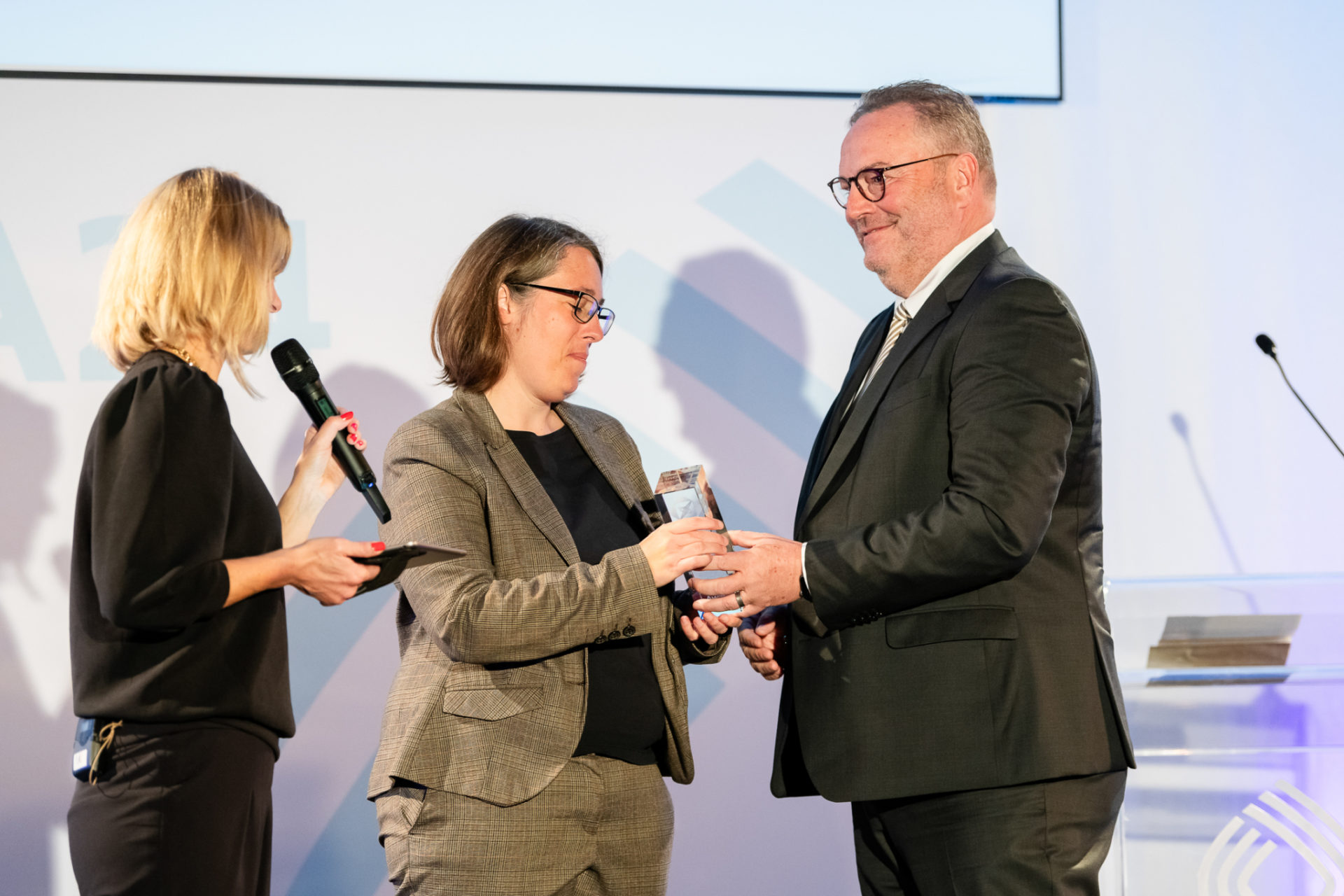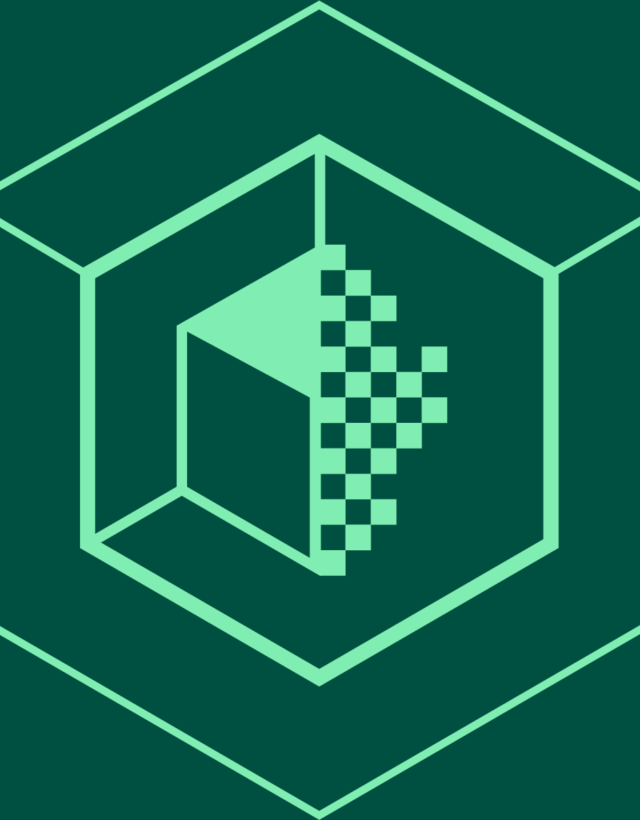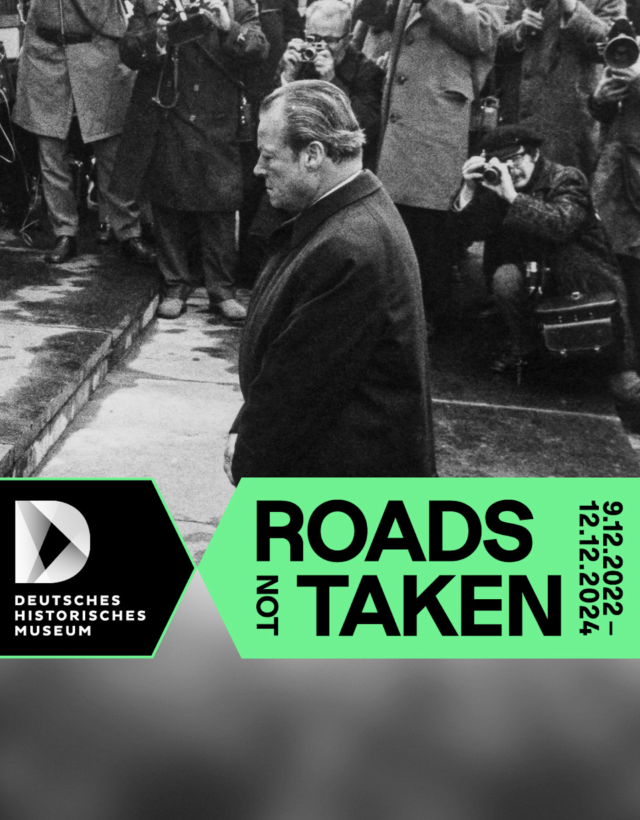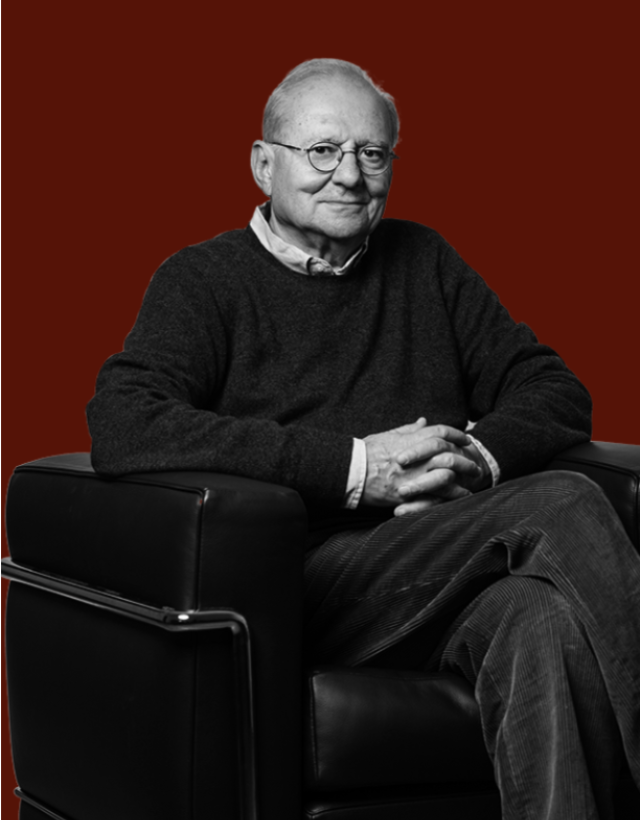On 16 October, the Grimme Online Award 2024 was presented at the Grimme Institute in Marl. This year, one award for high-quality journalistic online content was awarded to a project supported by the Alfred Landecker Foundation: #LastSeen. Images of Nazi deportations received the accolade in the "Knowledge and Education" category.
The project was chiefly developed by the Selma Stern Centre for Jewish Studies Berlin-Brandenburg at the Free University of Berlin. The team, led by project manager Dr Alina Bothe, collects, researches, and publishes all surviving historical photographs of deportations from the Reich territory between 1938 and 1945. The interactive digital exhibition created through their research is aimed at both an expert audience and the interested general public, and it seeks to encourage engagement with the stories and fates behind the photos.

#LastSeen impressed the jury of the Grimme Online Award with its scientific precision, ethical handling of historical photographic documentation, and thoughtful application of digital tools, as laid out in the jury’s statement: “The project demonstrates impressively how the atrocities of the Nazi era can be made visible through careful research and accurate presentation.”
#LastSeen is one of the few research projects that has been awarded the Grimme Online Award. Dr Alina Bothe contextualises the significance of the award: “#LastSeen conducts foundational academic research right at the interface of knowledge transfer. We share our research findings online as a work in progress because we want to make research accessible to everyone. This recognition demonstrates that we are achieving this at the highest level.”
“The project impressively facilitates engagement with historical sources and provides insight into the pervasive nature of Nazi persecution and extermination policies. It makes clear that deportations took place in broad daylight, witnessed by neighbours,” says Silke Mülherr, Co-CEO of the Alfred Landecker Foundation.
The digital image atlas is available here.
For information about the project #LastSeen, please visit: https://www.alfredlandecker.org/de/article/lastseen


